Alabama congressional delegates join bipartisan effort to boost HBCUs
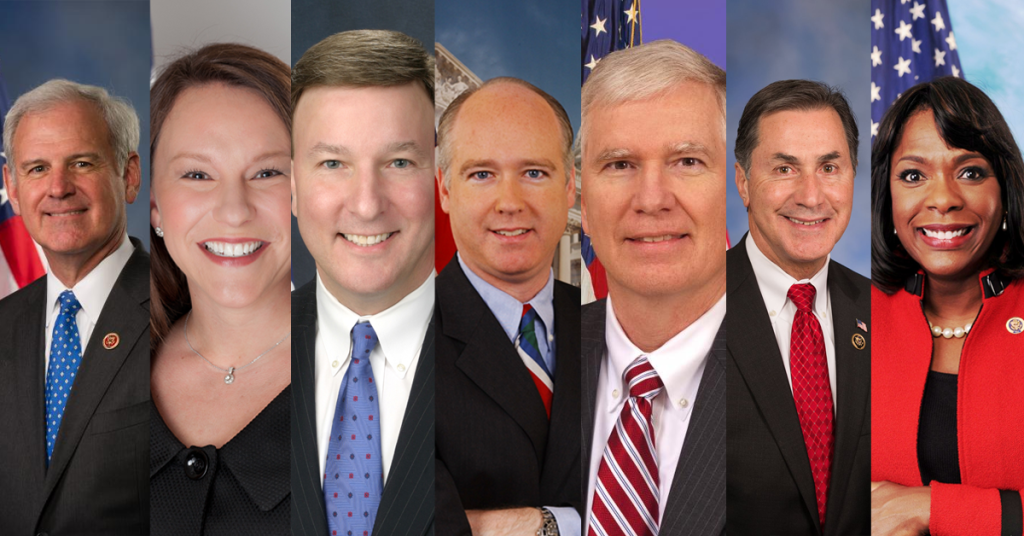
A new bipartisan effort will bring 37 members of Congress together to promote and protect the nation’s historically black colleges and universities (HBCUs). The Bipartisan Congressional HBCU Caucus will be led by Reps. Bradley Byrne of Alabama and Alma Adams of North Carolina; Rep. Terri Sewell of Alabama and Rep. Bennie Thompson of Mississippi will be vice chairs. In a press release issued Tuesday, Byrne said, “HBCUs deal with many of the same challenges as other higher education institutions, but they also face unique obstacles that demand special attention. Our nation’s HBCUs are evolving as they adapt to a changing workforce, and through this caucus, I look forward to helping guide the conversation about how we can best support our nation’s HBCUs.” More than 300,000 students attend 100 historically black colleges and universities each year. The institutions produce an estimated 25 percent of African-American graduates in the STEM fields – making them a key factor in meeting workforce demands for more skills in science and technology. However, the effort to bolster those institutions comes at a time when underfunding, institutional mismanagement, and lack of alumni support have taken their toll. Estimates put the six-year graduation rate for HBCUs at about 40 percent; the graduation rate at predominately white colleges is about 60 percent. “HBCUs still play a vital role in educating our youth, and the primary purpose of the Bipartisan Congressional HBCU Caucus is to help these storied institutions continue to flourish,” said Rep. Sewell in a statement Wednesday. “My district is home to some of the most prominent HBCUs in the country, and I am proud to join the Bipartisan Congressional HBCU Caucus as Vice Chair.” The Congressional Black Caucus has criticized President Obama’s relationship with HBCUs, arguing that his education policies would force many of the historic institutions into extinction. That criticism came to a head early this year when the Obama announced a program to provide free community college for any student who desired to attend, a move that some predicted would only undermine black colleges and universities. A prepared statement from Byrne’s office said the caucus members would “work to create a national dialogue, educating other Members of Congress and their staffs about the issues impacting HBCUs. The caucus will also work to draft meaningful bipartisan legislation to address the needs of HBCUs, and to support students and graduates of HBCUs by increasing access and career opportunities.”
Vermont Sen. Bernie Sanders to run for president
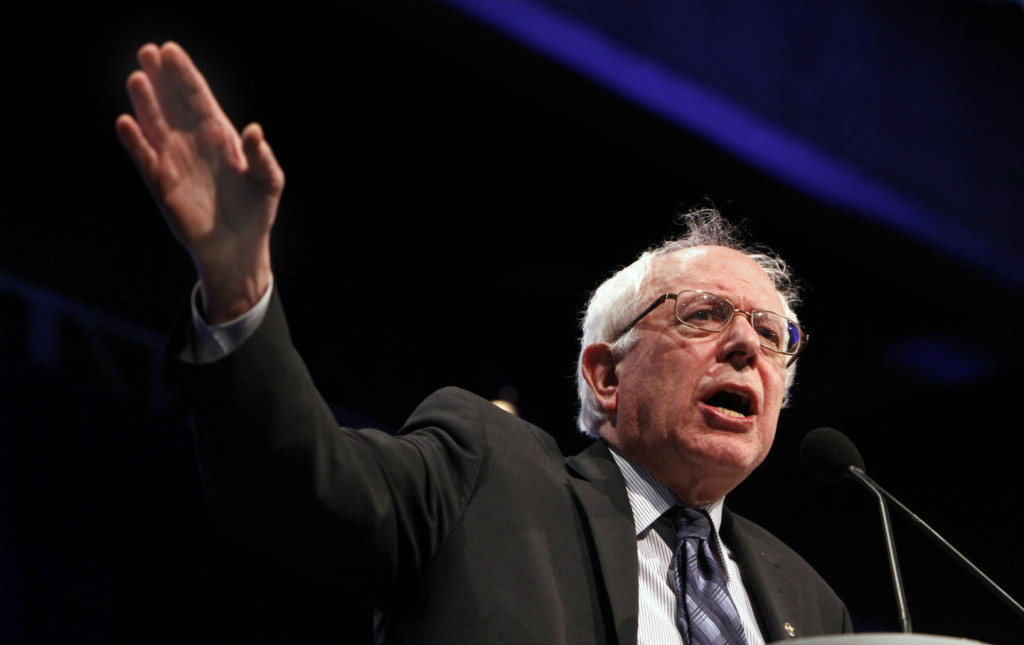
Vermont Sen. Bernie Sanders will announce his plans to seek the Democratic nomination for president on Thursday, presenting a liberal challenge to Hillary Rodham Clinton. Sanders, an independent who describes himself as a “democratic socialist,” will follow a statement with a major campaign kickoff in his home state in several weeks. Two people familiar with his announcement spoke to The Associated Press under condition of anonymity to describe internal planning. Sanders will become the second major Democrat in the race, joining Clinton. He has urged the former secretary of state to speak out strongly about issues related to income inequality and climate change. The former first lady and New York senator is viewed as a heavy favorite in the primary and entered the race this month. The white-haired senator and former mayor of Burlington, Vt., has been a liberal firebrand, blasting the concentration of wealth in America and assailing a “billionaire class” that he says has taken over the nation’s politics. His entry could be embraced by some liberals in the party who have been disenchanted with Clinton and have unsuccessfully urged Massachusetts Sen. Elizabeth Warren to join the race. In recent weeks, Sanders has been a forceful critic of the proposed Trans-Pacific Partnership trade agreement, which would eliminate tariffs and other trade barriers for the U.S., Canada and Asian countries conducting commerce with each other. “One of the key reasons why the middle class in America continues to decline and the gap between the very rich and everyone else is growing wider is because of disastrous trade agreements which have sent millions of decent-paying jobs to China and other low-wage countries,” Sanders said last week. Sanders generated attention in 2010 when he staged a lengthy Senate floor speech opposing a tax agreement by President Barack Obama and Republicans. He has called for universal health care, a massive infrastructure jobs and building program, a more progressive tax structure and reforms to address the U.S. Supreme Court’s Citizens United decision, which Sanders says has unleashed a torrent of money from big donors to political candidates. The senator has generated enthusiasm on college campuses and liberal enclaves in the early voting states of Iowa, New Hampshire and South Carolina and made several trips to court the influential Democratic voters there. “He will add color,” said Lou D’Allesandro, a Democratic state senator from New Hampshire. “He’s not bashful about anything.” Kathy Sullivan, a New Hampshire supporter of Clinton and a member of the Democratic National Committee, said Sanders’ decision was expected. “I know Hillary Clinton has always been expecting for there to be a competitive Democratic primary in New Hampshire,” Sullivan said. “I think he should be taken seriously.” Karl Rhomberg, a Davenport, Iowa, Democratic activist, said that while he expects Clinton “to be the nominee, I expect her to listen to Bernie, listen to (Martin) O’Malley and listen to people from the left.” He added: “If Bernie is going to put a stake on the left side of the field and draw Hillary toward it, that’s OK with me.” Sanders will start his campaign as a distinct underdog against Clinton, who remains the dominant front-runner. The Vermont senator is likely to face other challengers in the primary, such as O’Malley, the former Maryland governor, former Virginia Sen. Jim Webb and ex-Rhode Island Gov. Lincoln Chafee. A feisty voice for liberal policies, Sanders has long championed working-class Americans. He grew up in a Jewish family in Brooklyn — his father, an immigrant from Poland, sold paint for a living —and his views about the distribution of wealth were formed early. “A lack of money in my family was a very significant aspect of my growing up,” Sanders told the AP in December. “Kids in my class would have new jackets, new coats, and I would get hand-me-downs.” After his graduation from the University of Chicago, Sanders moved to Vermont in the 1960s as part of the counterculture, back-to-the-land movement that turned the state from solid Yankee Republican into one of the bluest in the country. Sanders lost several statewide races in the 1970s before he was elected mayor of Burlington in 1981 — a race he won by 10 votes. He was elected to the House a decade later, then won a Senate seat in 2006. He has carried a consistent message during his political career, arguing that the system is rigged in favor of the wealthiest Americans to the disadvantage of the nation’s poor and working class. Associated Press writer Kathleen Ronayne in Concord, N.H., and Catherine Lucey in Des Moines, Iowa, contributed to this report. Republished with permission from The Associated Press.
Regions Bank fined $7.5 millon for illegal overdraft fees
The Consumer Financial Protection Bureau has issued an order saying Birmingham-based Regions Bank bank illegally imposed overdraft fees on hundreds of thousands of its customers. Since 2010, CFPB regulations have required that banks give checking customers the option to “opt in” to overdraft protection or instead have their card declined once their account had reached zero. Instead, Regions Bank extracted overdraft fees from customers who had wanted their cards declined at the point of sale. The result, according to CFPB, was a whopping $49 million in illegal fees taken from customer accounts in 16 states. According to the release by CFPB Tuesday, “Regions Bank voluntarily reimbursed approximately 200,000 consumers a total of nearly $35 million in December 2012 for the illegal overdraft fees. After the Bureau alerted the bank to more affected consumers, Regions returned an additional $12.8 million in December 2013. In January 2015, the bank identified even more affected consumers and is now required to provide them with a full refund. Under the terms of the consent order filed today, Regions must hire an independent consultant to identify all remaining consumers who were charged the illegal fees. Regions will return these fees to consumers, if not already refunded. If the consumers have a current account with the bank, they will receive a credit to their account. For closed or inactive accounts, Regions will send a check to the affected consumers.” Regions will required to issue refunds to customers affected by the policy, to pay another $7.5 million in fines to CFPB, and to make sure the negative activity is expunged from their credit histories. As part of this enforcement action, CFPB has issued a warning to consumers about the risks of overdraft protection programs. The agency reports that customers who opt into these protections pay higher banking fees and incur more involuntary account closures.
Steve Kurlander: There’s no constitutional right to riot
By Steven Kurlander Another African-American young adult confronts police, another death results, another riot ensues. Another Ferguson. Cries of police brutality once again seek to justify unmitigated rioting and to justify not allowing riot police to prevent destruction and restore law and order by necessary force. This time, it was Baltimore. It’s becoming business as usual in 21st century America. 2015 meets 1967. In this era, it’s playing live on social media and television, with CNN and MSNBC “reporters” pontificating at the scene about the social causes of the violence. Reporters stood there justifying the violence, actually encouraging it, instead of just reporting in a neutral journalistic manner. They gave front stage to idiotic thugs as they cut fire hoses being used by beleaguered firemen to fight mob-set fires, all in front of millions of Americans. Once again, the violence went unabated, and Americans, numb from the significance of the violence taking place across their country, watched awhile, then turned their attention to The Voice, a baseball game or Bruce TransJenner reality shows. In the era of Obamaesque political correctness, the lessons that should be learned from Ferguson, Staten Island and now Baltimore are lost. We should be reevaluating the September 11 justification for the militarization of our local police as both social and constitutional issues. Instead, it’s become just another act in the Theater of the American Absurd in our 24-7 cycle, just as much as Jenner’s sex change has become the obsession of the American people. Baltimore Mayor Stephanie Rawlings-Blake set the stage for violence in her city when, in describing police restraint in the face of weekend demonstrations over the death of Freddie Gray, she told a news conference, “We also gave those who wish to destroy space to do that as well.” What an idiot. She basically told Baltimore it’s OK to riot, to attack the police with bricks, to burn their neighborhoods, all in the name of protesting police brutality and their terrible way of life in their city’s festering slums. Instead of saying that violence will not be tolerated, Rawlings-Blake enunciated a new, politically correct tolerance for the destruction of private property as a new, politically correct First Amendment right to protest. So neighborhoods in Baltimore erupted into unchallenged violence Monday night. Looters, gang members, and those who came from out of the city to destroy Baltimore neighborhoods got the green light to “burn baby burn.” Rioters, particularly high school students, took a page from the Arab Spring in using social media to rally protesters to a mall to begin a “protest” for a peaceful march over Gray’s death that quickly turned into an assault on police and looting in the streets. To justify the unlawfulness, youthful organizers of a protest on Monday purposely emulated The Purge, a film centered on lawlessness in the future. As much as the Arab Spring has turned a number of Arab countries into swaths of anarchy and destruction, America now stands on the precipice of similar anarchy in its inner city ghettos. Much as Jenner has turned into a woman, America is turning into a tolerated state of anarchy. The lesson of Baltimore should be that Americans need to wake up in front of their tablets and televisions and notice how the misuse of words and arguments in Baltimore, and Ferguson too, leads to violent behavior that must be questioned and not tolerated. Never should there be a right to riot, or a tolerance of it on any city street. Steven Kurlander blogs at Kurly’s Kommentary (stevenkurlander.com) and writes for Context Florida and The Huffington Post and can be found on Twitter @Kurlykomments. He lives in Monticello, N.Y. Column courtesy of Context Florida.
Medicaid expansion debate derails up-or-down vote on agencies’ “sunset”
The clock is ticking for several state agencies and the Senate had scheduled to spend much of Tuesday morning deciding whether to let them continue working or to allow their charters to expire. Instead, Senate Democrats continued to slow the process with extended floor speeches after dissent over a resolution by the Republican majority opposing Medicaid expansion. Alabama law builds an expiration date into the charter that governs certain state agencies. The Sunset Committee then conducts reviews of each agency and determines whether it should terminate, continue business as usual, or modify itself toward a new purpose. The issue has taken on national importance as Republican U.S. Rep. Bradley Byrne of Alabama introduced legislation last week to submit federal government agencies to a similar standard. His Sunset Inefficient and Unaccountable Government Act would subject agencies to 10-year reviews by Congress, followed by a congressional vote to renew or eliminate them. Among the agencies slated for review in the Senate on Tuesday morning were those responsible for licensing and regulating athletic agents, massage therapists, polygraph examiners, and admission to the State Bar.
Katherine G. Robertson, Caleb Crosby: Gaming a bad idea for Alabama

We have known for months that a deal was in the works to expand gambling operations in Alabama either through a lottery, a tribal compact, or privately run casinos. Such a move under Republican leadership is disheartening, but not surprising. Any chance at a money grab, be it through tax increases or gambling, is far easier than taking a scalpel to the drivers of the current budget shortfall. The General Fund woes present a very real challenge for our leaders, but the public is being fed a number of false choices as to how the problem must be solved. We should not be forced to choose which revenue generator is the least offensive. There are still plenty of good ideas and even bills on the table that would help the state do what the private sector does — scale back spending in a down year. The appeal of easy money through gambling is the idea that those tough decisions can be sidestepped, but not without repercussions. The Policy Institute’s position on using either of these tactics to generate money for the state has been well- publicized throughout our 25-year history. The success of lotteries and gambling, of course, depends upon the participation of the poor and vulnerable. The state then becomes addicted to such funding streams, politicians actually desire more, and more individuals and families recklessly spend their money that way. Calls to further expand gambling will become incessant and government will be expanded right along with it. Simultaneously, Alabama’s leaders will become owned by gaming entities whose power and influence is made possible via money lost by our state’s gamblers. Because of saturated gaming markets, the only people visiting Alabama’s casinos will be Alabamians, especially its poorest. Then local economies will be left to bear the brunt of this bad decision by state leaders. While casino gaming is being advertised as a job creator, the jobs that typically come with gambling tend to be low-wage positions that, because of falling demand, are short-lived. In the past year alone, two casinos in Mississippi have closed. In Atlantic City, N.J., four casinos have closed or will close soon, including its newest one, the $2.4 billion Revel. Thousands of workers in both states who thought that gambling would be their ticket to success have been laid off. The irony in all of this is that 20 other states face budget shortfalls. Most of their shortfalls are substantially larger than ours. Guess how many of the “shortfall states” have lotteries? All but one of them. Guess how many have casinos? 14 of them. Unless a state’s spending problems are fixed — most of which are related to Medicaid, prisons, and public pensions — new revenues can’t keep pace with the rising costs of these services or programs. For instance, Alabama’s share of Medicaid costs has doubled in the past 10 years and shows no signs of slowing down. As a result, the state’s need for more of your money through one mechanism or another will never cease to be necessary. API has proposed or supported a number of ideas that, if implemented, would help fill the budget gap. We’ve researched and recommended various cost-saving reforms to our public pensions, Medicaid prescription reform, eliminating vacant positions within state government, privatizing ABC and bidding out various nonessential government services, exploring tax amnesty to generate revenue already owed to the state, and bringing health insurance premiums of state employees more in balance with those of private-sector workers. Some of those ideas are making their way through the Legislature and some are not. All of them would be challenging to pass — they are all disfavored by one group or another — but none of them exploit the poor. Using the excuse of a budget shortfall to pave the way for more gambling is irresponsible. The effects of it would plague our state long past the political careers of those leading the charge. ••• Caleb Crosby is president and CEO and Katherine Robertson is vice president for the Alabama Policy Institute, a nonprofit research and education organization dedicated to the preservation of free markets, limited government, and strong families. If you would like to speak with the authors, please email communications@alabamapolicy.org or call (205) 870-9900. Note: This column is a copyrighted feature distributed free of charge by the Alabama Policy Institute (API). Permission to reprint in whole or in part is hereby granted, provided the author(s) and API are properly cited.
Quick look: Today at the Statehouse
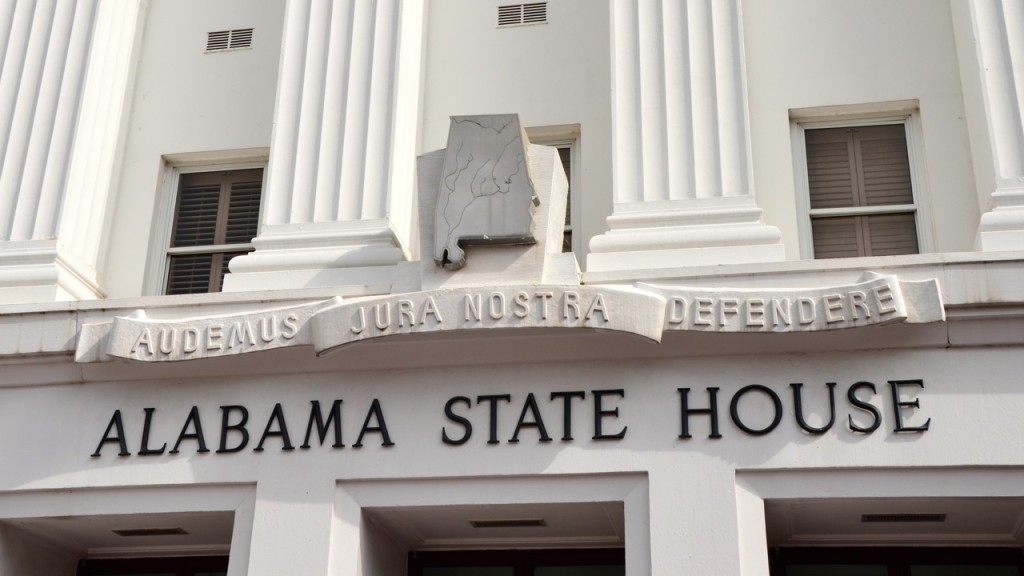
We should see major movement on several bills this week: Sen. Cam Ward‘s bill tackling prison overcrowding will go before a House panel on Thursday; The House health committee will hold public debate on a host of policies governing access to abortions; Two proposals are expected to be kicked around to address the budget crisis with a significant gaming expansion. We’re on day 17 of the 2015 session and should see a couple of interesting votes today. House Bill 236 allows kids in home schools access to extracurricular activities at their zoned school. This was quite a sticking point in the debate over virtual schools last week so we’ll have to see how it fares on its own. Senate Bill 157 authorizes college scholarships for children who have been in foster care, even those adopted after age 14. Keep checking ALToday.com for updates.
Marco Rubio on campaign swing through California
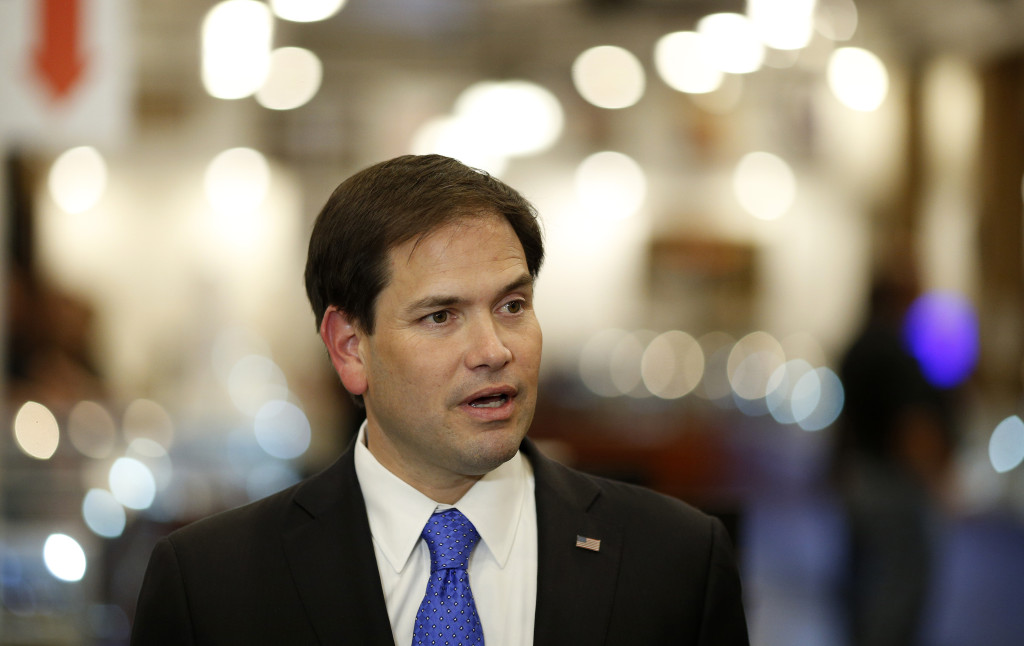
Republican presidential candidate Marco Rubio is turning to a state known as a perennial source of campaign money. In California, Rubio has private fundraisers on his agenda in San Francisco and in Los Angeles. The Florida senator also plans to deliver a speech Tuesday in Los Angeles, the only public event on his two-day swing. It’s unclear whether California will factor in a Republican primary fight, apart from its concentration of donors. If the nomination is locked up in the campaign’s early stages, California’s June 2016 primary election could be a mere formality. But it could also become a battleground if the race is tight. It’s Rubio’s first visit to California since he declared his candidacy this month.
State Supreme Court rules against payday lenders
The Alabama Supreme Court has ruled that the state Banking Department can establish a payday loan database to enforce an existing $500 limit on how much people can borrow at one time from the short-term lenders. The decision was a victory for advocates who have sought restrictions on the loans, but they say it does not go far enough in limiting an industry they said preys upon the financially vulnerable. A payday loan store owner argued that the database is unworkable because much of the industry is online and untouched by state regulation. Payday lenders sued Alabama’s Banking Department in 2013 to block creation of the system. Justices upheld a Montgomery’s judge’s ruling that the state was within its rights to establish the database. “It was great. Hallelujah,” said Rep. Patricia Todd, a Birmingham Democrat. Todd was sponsoring legislation to spell out that the state had the right to create the database. She said she will withdraw her bill that was up for a vote Tuesday in the House of Representatives. Existing law prohibits people from taking more than $500 in loans at one time. However, that limit is essentially unenforceable without a centralized system to track the loans. Shay Farley, legal director of Alabama Appleseed, said the database will give the state the tools it needs to enforce the loan limit. A store owner said borrowers will seek out loans from online lenders. “The database, it will not work. It’s just not going to work. Over 50 percent of the industry is online and unregulated by the state of Alabama,” said Max Wood, the owner of Cash Spot stores in Birmingham and Tuscaloosa. Although the Banking Department has announced the creation of the database, it is unclear when it will be implemented. The department announced last week that a June rollout date had been delayed. Todd, Farley and other advocates said other reforms are needed in addition to the database. “While we believe these regulations are a step in the right direction, it doesn’t end the 456 percent interest rates payday lenders are allowed to charge Alabamians,” said Sara Zampierin, a staff attorney with the Southern Poverty Law Center. Bills pending in the Alabama Senate patterned after Colorado regulations would give borrowers up to six months to repay the loans instead of just 10 to 14 days. The longer repayment window would reduce what borrowers pay. Customers are unable to pay off a payday loan within two weeks, advocates said, and accumulate large fees by rolling over the loan or taking out subsequent loans to pay off the first. Wood said many storefronts closed after Colorado put similar requirements on payday lenders. Republished with permission from The Associated Press.
Women of Influence: U.S. Rep. Terri Sewell
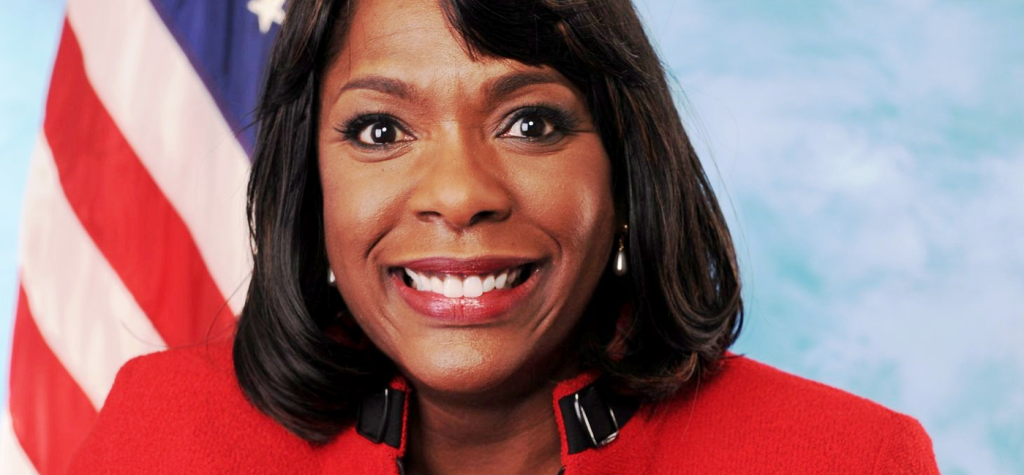
In the second installment of Alabama Women of Influence is Alabama’s second female congressional representative to be elected in a regular election and Alabama’s first black woman to serve in our congressional delegation – U.S. Rep. Terri Sewell. We could spend an entire day, and then some, talking about the accomplishments and friends of Terri. But before we do that it is important to take a step back together … Selma, Ala., in January 1965, Sewell was born into the prelude of the historic Selma March, a day before Martin Luther King Jr. arrived in Selma. She did not allow the stigma of society to get in her way – becoming the first black valedictorian of her high school and going on to study at Princeton University, Oxford University, and Harvard Law School, and later landing a job on Wall Street. During her journey to Congress she was friends with the future first lady, then Michelle Robinson, at Princeton, was later a Harvard classmate of Barack Obama, and was even an intern for U.S. Sen. Richard Shelby, who then was a House Democrat. Terri Sewell became Congresswoman Sewell in January 2011 when she took her oath of office administered by the Speaker of the United States House of Representatives. Following in her mother’s footsteps — she was the first black woman elected to the city council — Terri is a woman who made her own road. Creating a road that women all over Alabama can be proud to follow on and make their own ways from. Since taking her oath to be a member of Congress, Sewell has taken a strong stand on civil rights. Although the march was 50 years ago, there is still a lot of education to be done and Sewell is doing just that. Earlier this year, the U.S. Senate passed Senate Bill 517, a bipartisan bill Sewell introduced in the House “to award a Congressional Gold Medal to the courageous Foot Soldiers whose perilous journey from Selma to Montgomery led to the passage of the landmark Voting Rights Act of 1965.” Known for being a team player in Congress, Sewell has continuously spoken out to ensure there is consistent job creation and development for the workforce, specifically economic development. She consistently reaches across the aisle working with conservative members from the Alabama delegation for bills to strengthen the state. She and Rep. Bradley Byrne recently worked together to file a bill bringing back the Workforce Development Tax Credit Act, H.R. 1781. It would help stimulate employment and increase work-skills development by creating incentives for employers to hire apprentices. We can all say we want to see more jobs but the congresswoman has gone as far as to host job fairs and workshops to ensure there is the connection between the employers and potential employees and also to provide the potential employees with the knowledge they need to get back into the workforce. “I am proud of the work my office is doing to address the challenges posed by systemic unemployment in the 7th Congressional District. Through our Project R.E.A.D.Y workshops and annual Job Fair, we are working to make sure that all in the 7th District have access to meaningful career development,” Sewell says on her official website. While her list of accomplishments continues to grow, Sewell will be the first to tell you, “There is still much work to be done.” She’s a visionary whose steadfast dedication to improving the quality of life in Alabama is apparent in everything she does. Need we really say anymore as to why U.S. Rep. Terri Sewell is an Alabama Woman of Influence?
Clayton Turner: Encouraging young conservatives to get involved in Young Republicans
Speaker of the House Mike Hubbard, Senate leaders, and Attorney General Luther Strange are just a few of the elected officials who will be on hand to meet young conservatives at the upcoming convention in Birmingham. Why would these influential state leaders come see us? Because we are the future of the nation and the future of the party. Many involved in our organization are already contributing greatly to the state. The Young Republican Federation of Alabama (YRFA) is composed of Republicans, age 18 to 40, from across the state and we are looking for those with a passion for the Republican Party to join as members and leaders. Now is the time, as we come into what is sure to be a key presidential year and right as our state leaders begin to take on a budget crisis and tough policy decisions. We have three goals, support and grow conservative candidates and push for conservative policies. Our functions include networking opportunities and the opportunity to just enjoy time with friends who you share fundamental beliefs and a passion for politics. I encourage all young conservatives to check out our website and consider joining. Our membership is composed of individuals from 11 individual clubs, and include elected officials, political consultants, Montgomery staffers, businessmen and women, young families, college students, and excited individuals from across the state wanting to get more involved in the political process. This is an opportunity for those who are new to the field to build relationships with those who have been around for decades and for seasoned professionals to discover new talent, rediscover the passion of politics, and to develop friendships that go beyond politics. Every two years, the YRFA hosts a convention where we handle the executive business of a large organization all the while hearing from various political leaders from across Alabama. This year, the YRFA Convention will be hosted by the Greater Birmingham Young Republicans (GBYRs) in Birmingham’s new “Uptown!” district with events Friday night at a Birmingham Barons game. Among the highlights of the convention is that the YRFA will be joined by Alabama’s Speaker of the House Mike Hubbard at the Barons’ game. Hubbard will throw out the first pitch for the game, and there will be food, drinks, and seats available for attendees and, of course, a chance to speak to and hear from Hubbard while watching America’s game. On Saturday, events kick off at the Westin with a legislative update from Hubbard and a yet-to-be determined Senate leader. This will be a great opportunity for attendees to hear from the leaders of Alabama’s legislative bodies on happenings within the Legislature and how Young Republicans can be involved and make a difference for our state. The YRFA business portion of the meeting will then commence with the election of new officers, the discussion and adoption of bylaws, platform, and resolutions. Whether members of the YRFA or not, attendees will have a great chance to see the values of the YRFA members solidified into a platform and the discussion about the next two years’ activities and plans. By joining us at this, the ground level, you can shape the direction of our party in the upcoming elections and make a role and a name for yourself. Candidates for Young Republican National Federation (YRNF) positions will also be afforded an opportunity to speak to the membership and discuss their vision for the YRNF. Fellow YRFA member and former officer Darius Foster, the choice of the YR Unite team for political director, will be on hand and will speak to his fellow YRFA members as well. During the luncheon, Attorney General Strange will address attendees on his ongoing work for Alabamians. Strange has repeatedly joined with attorneys general from across the country to fight the Obama overreach into our states so we are excited to welcome him as well. Convention is a great time for new or prospective members to join in for fellowship and an opportunity to meet members from across the state and learn more about individual clubs and the YRFA. Those interested in attending should RSVP on Facebook and contact YRFA Chairman Clayton Turner for more information. Clayton Turner is chairman of the Young Republican Federation of Alabama, a member of the Alabama Republican Party Steering Committee, a Jefferson County Republican Party district chairman and the assistant secretary for the Young Republican National Federation.


